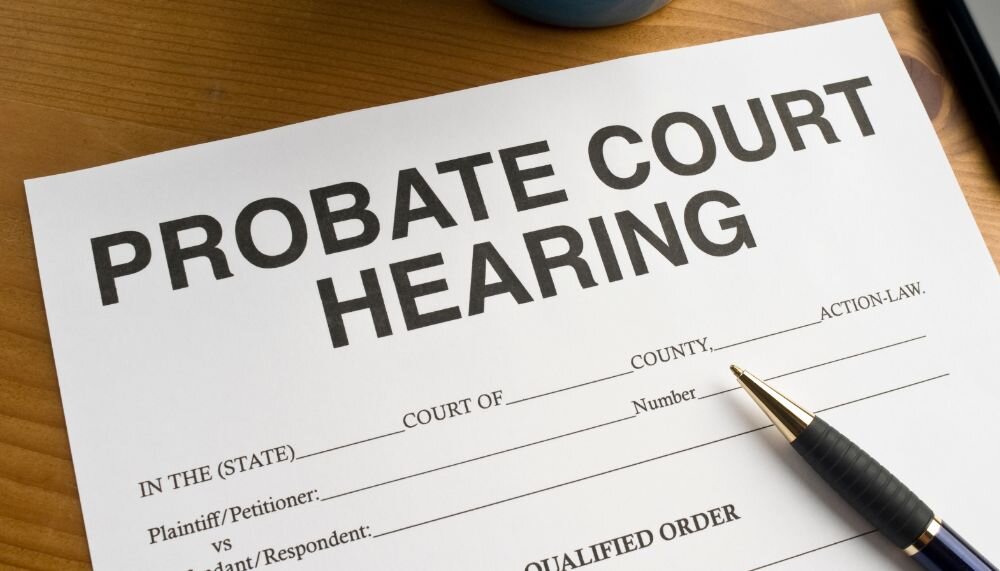
So, how long does probate take in Virginia? Well, the probate process in Virginia can be intricate and the duration can vary significantly based on various factors such as the complexity of the estate, the efficiency of the executor, the presence of a will, the court’s schedule, and whether any disputes or complications arise among beneficiaries or creditors. As we answer recurring question how long does probate take in Virginia we will provide a detailed breakdown of the probate stages and the factors affecting the timeline:
How Long Does Probate Take in Virginia: Step by Step
1. Filing the Will and Petition:
– Timeframe: A few days to a few weeks.
– Details: The first step involves filing the will (if there is one) and a petition to open probate with the local circuit court in the jurisdiction where the decedent resided. This includes submitting necessary forms and paying the required fees. If there is no will, the process still begins with a petition to the court to appoint an administrator for the estate.
2. Appointment of Executor or Administrator:
– Timeframe: A few weeks to a couple of months.
– Details: The court reviews the petition and appoints an executor (if named in the will) or an administrator (if there is no will or no named executor). The court may require a bond, depending on the value of the estate and the terms of the will.
Notification and Inventory
3. Notification to Beneficiaries and Creditors:
– Timeframe: 1 to 3 months.
– Details: The executor is responsible for notifying all beneficiaries named in the will and any potential heirs if there is no will. Creditors must also be notified to give them the opportunity to file claims against the estate. Virginia law requires that notice to creditors be published in a local newspaper, which starts a six-month period for creditors to present their claims.
4. Inventory of Estate Assets:
– Timeframe: Up to 4 months from the executor’s qualification date.
– Details: The executor must compile a detailed inventory of all estate assets, including real estate, bank accounts, investments, personal property, and any other assets. This inventory must be filed with the Commissioner of Accounts, a court-appointed official who oversees the administration of estates.
Settling the Estate
5. Review and Payment of Claims:
– Timeframe: 6 months to a year.
– Details: The executor must review claims submitted by creditors and decide which ones are valid. Valid claims must be paid from the estate’s funds. This period can be extended if there are disputes over claims or if the estate lacks sufficient liquid assets to pay debts immediately.
6. Tax Matters:
– Timeframe: Up to 9 months for federal estate tax returns.
– Details: The executor must file the decedent’s final income tax returns and any required estate tax returns. In Virginia, the state estate tax was repealed in 2007, but federal estate taxes may apply for larger estates. Estate tax returns are due within nine months of the decedent’s death, although an extension can be requested.
Distribution and Closing
7. Distribution of Assets:
– Timeframe: Several months to over a year, depending on complexity.
– Details: After paying debts and taxes, the executor can distribute the remaining assets to the beneficiaries according to the will or state intestacy laws if there is no will. If the estate includes assets that must be sold, such as real estate or business interests, this can take additional time.
8. Final Accounting and Closing the Estate:
– Timeframe: A few weeks to several months.
– Details: The executor must prepare a final accounting, detailing all financial transactions that occurred during the probate process, and file this with the Commissioner of Accounts. Once the final accounting is approved, the executor petitions the court to close the estate.
Additional Considerations
– Disputes and Litigation: If beneficiaries contest the will or creditors dispute the payment of claims, the probate process can be significantly delayed due to litigation.
– Complex Assets: Estates with complex assets such as business interests, extensive real estate holdings, or complicated investment portfolios require additional time to value and manage.
Typical Duration
– Simple Estates: Can often be settled in six to nine months.
– Complex Estates: May take one to two years or longer, especially if complications arise.
In conclusion, while the probate process in Virginia can be relatively straightforward for simple estates, it can become quite lengthy and complex, particularly when dealing with high-value or contentious estates. Executors should be prepared for a process that can span from several months to multiple years, depending on the specific circumstances of the estate. we hope this answers your question of how long does probate take in Virginia. And as always, shoot us a call or send us an email for further information on how you can sell your house in probate!
